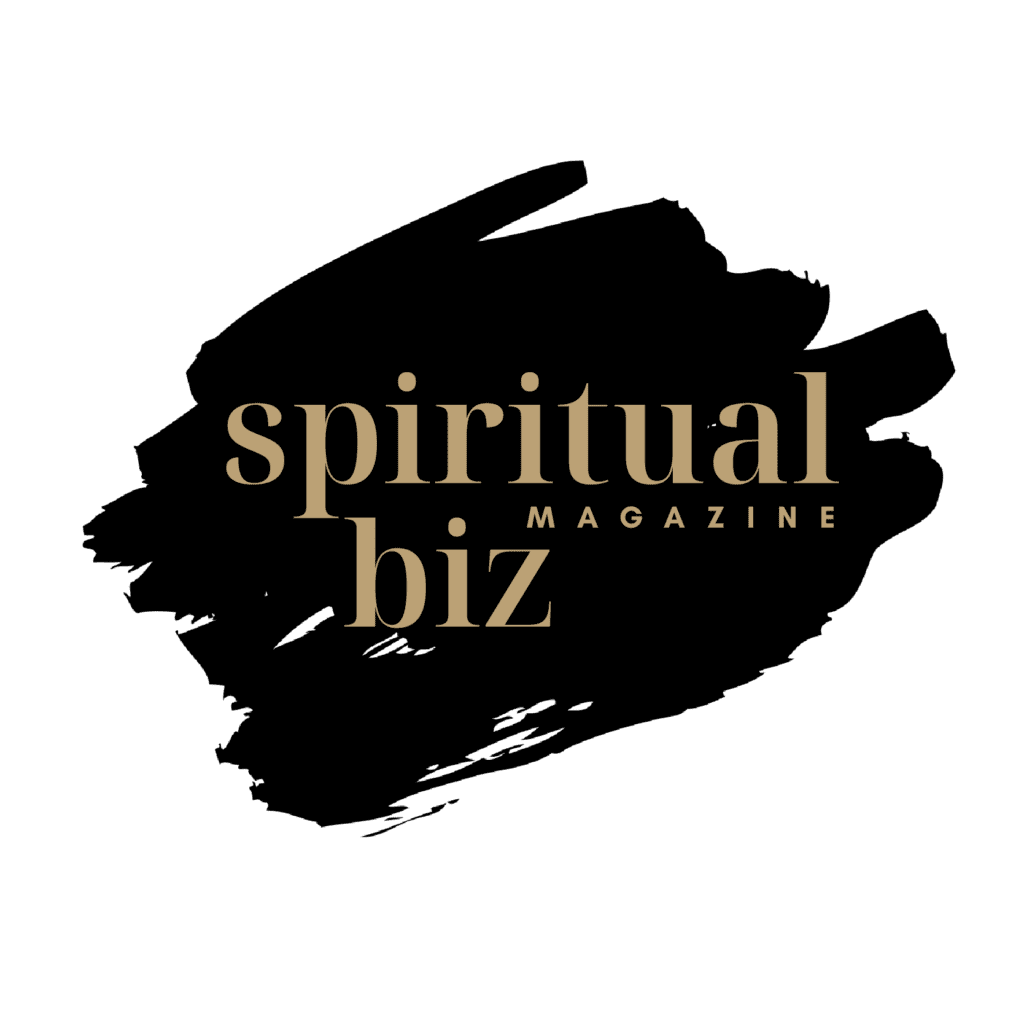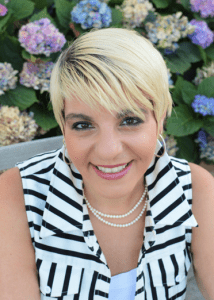
Dr. Angela E. Lauria is the publisher and founder of The Author Incubator™ The Author Incubator™ and creator of the Difference Process™ for writing a book that matters.
Helping entrepreneurs free their inner author since 1994, Angela has created almost 200 bestselling authors in the last 2 years. Her clients have been seen everywhere from Vanity Fair to O Magazine to the Today Show. She lives with her family at The Author Castle in McLean, Virginia.
MORE FROM ANGELA LAURIA
Kimberly: As you’re bringing in these leads from your webinars and other ways, how are you monitoring your conversion rates? Is there a software that you’re using that helps you keep yourself organized so you know what leads turned into clients?
Angela: I use Google Analytics, and I know how many people I’m adding to my list each week; but because I have such a long lead time and because I have a high ticket item, luxury purchase is a high ticket item, so I don’t need that many customers. If I was doing a $97.00 item, I would definitely be tracking it more closely, but my products are $10,000. I sign up 40-50 clients a year, and they’re people who have been following me for a long time, know me, like me and trust me. So really for the stats, I’m looking at likes and shares on Facebook, and new leads coming into the top of my funnel.
And it’s not really a ‘hope and pray’ strategy, but the conversion number that I look at is how many people do I talk to? If you’re spending $10,000, I don’t recommend just dropping your credit card on a website for that. I know there are people out there that do that, but that’s not how I work with people. I want to talk to them, it’s a relationship, I’m in with them, and it’s a commitment I’m making to them, I don’t want to make a commitment to somebody I can’t really help, I want to talk to them and see if they are a fit. I try to do somewhere on the order of ten calls a week, and I have about a 30% conversion ratio from that. So, I don’t really need to use Google Analytics with a conversion pixel because I’m getting on the phone with people and can count. This week, I have done seven calls and have gotten two sales, and I have one more call scheduled, so that will be eight calls this week. Maybe I’ll make two to three sales; that’s a good week for me.
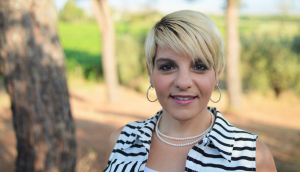
Kimberly: That’s a really good point. When it’s a high ticket item, the marketing and strategy for bringing people in is entirely different.
Angela: And I’ve done low ticket items and used the conversion pixel in Google Analytics, and I’m looking at how many people come to my page, how many bail, and if I add a video on the page, does it make people stay longer? Are they more likely to convert? But what I found with my low ticket items is that I was attracting people who wanted to tell people they were writing a book, they wanted to think about writing a book, and that’s fine. Some people sell to those people, and they are perfectly happy. For me, I want to sell to people who are going to finish a book and make it a bestseller and change the world with it. Those are the people I want to attract, and upping my price from 497 to $10,000 did that. I needed a lot fewer clients, it was a lot less work, and I am getting the people I actually wanted to work with. So, that was the strategy over tactics. By the way, how I did that and how I figured that out was by working with a coach. So, if I want someone to hire me for $10,000, I would better be willing to drop $10,000 on a coach that is going to get me even further ahead of my clients.
Kimberly: Such a fantastic advice! Sometimes it takes the outside eyes to look in. But then to really define who your client is, redefine who to work with and if they have the right amount of commitment with that dollar amount.
 Angela: Yes, I had a shame problem. My first block in business was getting testimonials, I had clients but some of them were free or cheap; maybe I sold a $500 product but I would give them $450 off. They loved me, but I couldn’t figure out how to get testimonials. That was probably my first six months to a year in business. It was such a block that I would have to take to my bed, I would spend days in bed. I was like, ‘I can’t market my next thing until I get testimonials!’ I don’t know why there was this huge block, and then I got these amazing beautiful testimonials. I hired and worked with a coach, and I was like, ‘Here is my problem, I don’t know how to get testimonials.’ The solution was so easy which I’ll give a little tip in case people are interested.
Angela: Yes, I had a shame problem. My first block in business was getting testimonials, I had clients but some of them were free or cheap; maybe I sold a $500 product but I would give them $450 off. They loved me, but I couldn’t figure out how to get testimonials. That was probably my first six months to a year in business. It was such a block that I would have to take to my bed, I would spend days in bed. I was like, ‘I can’t market my next thing until I get testimonials!’ I don’t know why there was this huge block, and then I got these amazing beautiful testimonials. I hired and worked with a coach, and I was like, ‘Here is my problem, I don’t know how to get testimonials.’ The solution was so easy which I’ll give a little tip in case people are interested.
After people worked with me I just sent them a survey on Survey Monkey, and in there I asked for testimonials, and here is the question I asked, ‘If one of your clients was interested in this program what would you tell them about it?’ And then they would write something, and my next question was, ‘Can I use that as a testimonial?’ It’s not hard! I don’t know what my block was, it obviously had more to do with my mindset than that task which took only five minutes. But then I had these testimonials, and I had a huge shame because all the other book coaches had their testimonials with their clients holding their book. My clients hadn’t finished their books, but they were like, ‘Angela is the best book coach in the world.’ And I’m like, ‘Somebody is going to call them and are going to say: Well, where is your book?’ And my people who wrote testimonials are going to say, ‘Oh, I didn’t write a book but she’s great.’
Kimberly: I’m going to talk a little bit about your book process. You are using the book to build a business and make a difference and everything. Let’s talk about how you walk your clients through your process.
Angela: The first thing we start with is, ‘Do you want to write a book or do you want to write a book that makes a difference?’ I can help people with those and have 10-20% of my clients who just want to write a book. They want to give it to their daughter, husband or mother and want to have that checked on their resume and move on with their life. And they’re great, and I’m happy to help them do that, but my real focus is on writing books that make a difference, and that means that it gets out in the world, into people’s hands, and you can offer them an online support. That book by Martha Beck, Finding Your Own North Star, was a huge turning point, mostly because of that one question, ‘What do you lose time doing?’ I have gone on to take many classes with her, have gone on to be a certified coach, and have worked in a nine-month training program with her. If you want to make a difference with your book, you have to offer them a way to continue with you.
That $20 investment and couple hours of my time were just a jumping off point. It was the way that I met Martha and got to know her approach and thoughts, she was a fit for me. The book for $20, and she probably made $15,000-20,000 off of me. I read that book in February of 2007, so in seven years I spent $15,000 with her at least. So, did she make $20 off the book or did she make $15,000? And by the way, she didn’t make $20, she probably made $1 because with the publishing contract, very often the publisher takes 93% of your revenue.
So she made $1 and $15,000 off of me. If you look at your book like, ‘Oh I’m going to spend $10,000 with Angela, I’m going to have to sell 10,000 books. Wow, how am I going to do that? And how much money do I have to spend to do that to make $10,000? Oh I’m going to have to spend another $20,000 marketing this book. Now I have to sell 30,000 books. How the hell am I going to do that?’ That’s overwhelming! But if you think about it like, ‘If I sell 1,000 books, and let’s say I make $1,000, and of those 1,000 people 100 of them spend another $1,000 with me, well now I make $11,000 off of my book.’ So if you look at your book as a way to make a difference, then there’s a huge business opportunity there, and that’s really the first principle of the program.
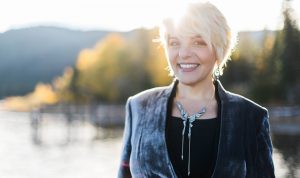
And then there’s a process I take people through. It’s called The Difference Process. There are 10 steps to writing a book that makes a difference. One of those steps is writing your book. One of those steps is publishing your book. For most people they think they are the only two steps in writing a book. The other eight steps are equally important, and writing your book is about 10% of your journey, publishing it – maybe 10%, and there’s 80% of the journey left where we really talk about: Who are you serving? How are you serving them? What’s the outcome you want from your book? What does success look like for you? How do you want to make a difference? Do you want to sell? Like one of the things Martha Beck has done that I bought was a writing workshop. Do you want to do a workshop? Martha also has done paid speaking engagements I have attended and I haven’t paid for, but somebody paid her $5, $10 or $20,000 to be a speaker at that event. Do you want to be a speaker?
So we really do a lot of work on figuring out what your outcome is. We’re not just going to you say, ‘If you build it, they’ll come.’ We’re not just going to throw our book out there and hope the phone rings. We are actually going to go into this knowing what we want to get out of it, Stephen Covey says, ‘Start with the end in mind.’
Kimberly: Great accountability! What do you think is the biggest challenge with marketing for these authors?
Angela: The hardest thing for most people is identifying a problem instead of talking about what they’ve learned. So they’ve had an amazing discovery, they have learned that ESP is so powerful, or they have learned that self-love is the key to solving all their problems, and they want to teach the technique from where they are. I have a background as an actor and in theatre, and I talk a lot about getting into character as your ideal reader. Most people are not searching self-love techniques. How often have you googled self-love techniques? Most people are looking for solutions to problems like ‘How do I get my husband to stop fighting with my husband without leaving the room?’ ‘How do I stop fighting with my mother?’ ‘How do I lose weight? How do I find my soul mate?’ And by the way, the answer to all of those questions is self-love, but if you write your cute little self-love technique, nobody is going to find your book. So that’s the number one obstacle. And then once you have the problem, then you know where to go and where to find these people. Where are they looking for solutions to these problems now? And it’s really about connecting with them where they already are or connecting with people who are your audience, who would most benefit from your book.
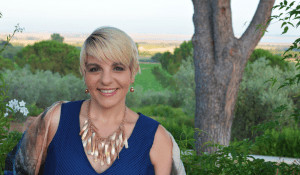
Kimberly: As an entrepreneur and building your business, is there a piece of software or something you do in your process to keep your business running that you couldn’t do without?
Angela: There’s a lot that I couldn’t live without, and it’s really sad because I’ve become dependent on a bunch of systems, but here are some things that I use. I coordinate with a lot of editors, designers, and project managers. There’s a lot of people on my team, and I would die without Basecamp, and I would say another similar product is Asana, and it has a free version. I pay about $50 a month for Basecamp, but it allows us all to communicate without emails getting lost in a shuffle, there are also to-do lists and tasks and things like that. The way I sell is through scheduling appointments for people and actually talking to them to see if I can help them, and if they are a fit for my program, and I use a program called Acuity Scheduling. There is Schedule Once, Genbook, there are tons of scheduling programs but Acuity Scheduling is essential to my business model.
And then I have a shopping cart, 1ShoppingCart. Infusionsoft I guess would be another option there, but switching over seems exhausting, so I’m sticking with one shopping cart for now. For my mail program I use MailChimp, I could use 1ShoppingCart, I don’t like the formatting functionality. Obviously a lot of people use Aweber, Getresponse or Constant Contact, but I need some sort of email program. My website is built on WordPress, and I have a membership area for my clients, and that’s on a program called WishList which is a plugin for WordPress. Those are probably some of the key pieces of technology that I use every day.
INTERVIEW TWEETABLE
“Self-love is the key to solving all problems.” ~ Angela Lauria
INTERVIEW LINKS
Company site: https://theauthorincubator.com
Facebook: https://www.facebook.com/TheAuthorIncubator/
Twitter: https://twitter.com/alauria
